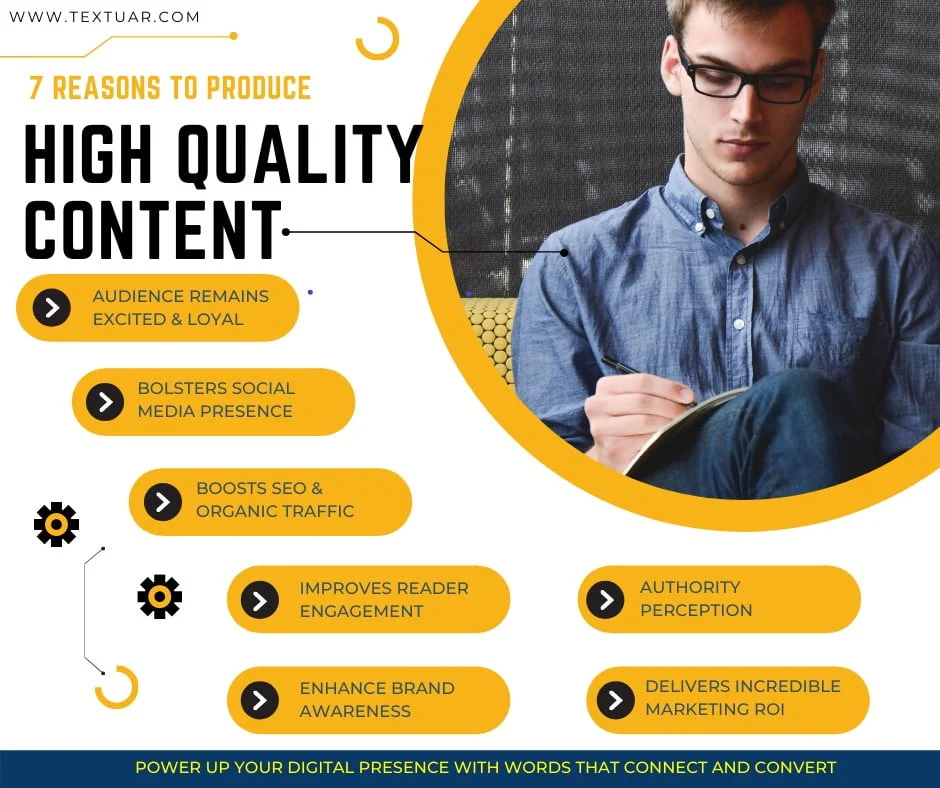In the ever-evolving world of digital marketing, Search Engine Optimization (SEO) remains one of the most effective strategies for driving organic traffic to websites. However, what constitutes “high-quality SEO” has significantly changed over time. Google and other search engines constantly update their algorithms, rewarding websites that provide value, trustworthiness, and relevance to users. This article explores the core principles of high-quality SEO in 2024 and offers actionable strategies to stay ahead.
1. Focus on User Experience (UX)
One of the most significant trends in SEO is the growing importance of user experience (UX). In recent years, Google has placed greater emphasis on metrics that measure how users interact with a website. These metrics include Core Web Vitals, which assess page load times, interactivity, and visual stability. A smooth, fast, and intuitive user experience is essential for both retaining users and ranking well in search results.Actionable Tips:
- Improve Page Speed: Use tools like Google PageSpeed Insights to identify areas for improvement.
- Optimize for Mobile: Ensure your site is fully responsive and functions well on all devices.
- Minimize Pop-Ups: Avoid intrusive interstitials that may annoy users and hinder accessibility.
2. Content Quality is Non-Negotiable
The days of keyword stuffing are long gone. High-quality SEO in 2024 means providing well-researched, comprehensive, and relevant content that satisfies search intent. Google’s algorithm is increasingly sophisticated, recognizing content that provides in-depth answers to user queries, is regularly updated, and demonstrates authority in its subject matter.Actionable Tips:
- Create Long-Form Content: Aim for detailed articles of 1,500+ words that cover topics in depth.
- Answer User Questions: Use tools like AnswerThePublic and Google’s “People Also Ask” to identify relevant questions to address in your content.
- Update Existing Content: Ensure older articles remain accurate and reflect current trends.
3. E-A-T: Expertise, Authority, and Trustworthiness
E-A-T is a cornerstone of Google’s quality guidelines, particularly for “Your Money or Your Life” (YMYL) pages, such as those related to finance, health, and safety. Websites that demonstrate expertise, authority, and trustworthiness tend to rank higher in competitive niches. This means you need authoritative content, well-researched data, and a solid reputation.Actionable Tips:
- Cite Sources: Provide references to authoritative sources, especially in YMYL categories.
- Author Bios: Include author bios for your blog posts, especially for technical or expert-driven content.
- Get Backlinks: Build relationships with other websites to earn high-quality backlinks from reputable domains.
4. On-Page Optimization
While content quality is crucial, on-page SEO techniques are still essential. This includes optimizing title tags, meta descriptions, headers, and images, as well as using relevant keywords in a natural and user-friendly way. Proper on-page optimization helps search engines understand the context of your content and improves your visibility.Actionable Tips:
- Use Targeted Keywords: Research and integrate keywords naturally into your content, headers, and meta tags.
- Optimize Meta Tags: Ensure every page has a compelling, keyword-rich meta title and description.
- Use Schema Markup: Implement schema to help search engines better understand and present your content in SERPs.
5. Technical SEO is a Must
Technical SEO is the foundation of high-quality SEO. Ensuring that your website is crawlable, secure, and free of errors is critical for search engine rankings. This includes everything from having a clean URL structure to using HTTPS and ensuring there are no broken links.Actionable Tips:
- Conduct Regular Audits: Use tools like Screaming Frog and SEMrush to identify and fix technical issues such as broken links or duplicate content.
- Implement HTTPS: Ensure your site is secure by using SSL certificates.
- Optimize Site Architecture: Ensure your site is easy to navigate for both users and search engines, with a logical URL structure.
6. The Role of Backlinks in SEO
Backlinks remain one of the most powerful signals in determining a website’s authority. However, the focus is now on quality rather than quantity. Earning backlinks from high-authority domains in your niche is key to building your site’s reputation.Actionable Tips:
- Create Shareable Content: Invest in high-quality content such as infographics, case studies, and original research that other websites will want to link to.
- Guest Blogging: Build relationships with industry peers and contribute guest posts to reputable websites.
- Monitor Backlinks: Regularly review your backlink profile using tools like Ahrefs to disavow any low-quality or spammy links.
7. Local SEO for Local Businesses
For businesses with a physical location, optimizing for local SEO is essential. Google My Business (GMB) profiles and local citations play a huge role in helping businesses show up in local search results. Additionally, optimizing your site for “near me” searches and local keywords can drive significant traffic.Actionable Tips:
- Optimize Your GMB Profile: Ensure all information (address, hours, etc.) is accurate, and encourage customers to leave reviews.
- Use Local Keywords: Incorporate city names and local landmarks into your content.
- Get Listed in Directories: Submit your business to local and industry-specific directories to increase visibility.
8. AI and SEO: The Future
Artificial Intelligence (AI) is increasingly shaping the future of SEO. Tools like GPT-4 and other AI-driven technologies are improving content generation, data analysis, and user experience personalization. AI can also help with predictive search, analyzing user behavior to provide more tailored results.Actionable Tips:
- Leverage AI for Content Creation: Use AI tools to assist in creating outlines, performing topic research, or improving on-page SEO.
- Utilize AI for Data Analysis: Employ AI-powered platforms to track SEO performance and make data-driven decisions.
- Optimize for Voice Search: With the rise of AI-driven voice assistants, optimizing for conversational search terms and long-tail keywords is becoming increasingly important.
